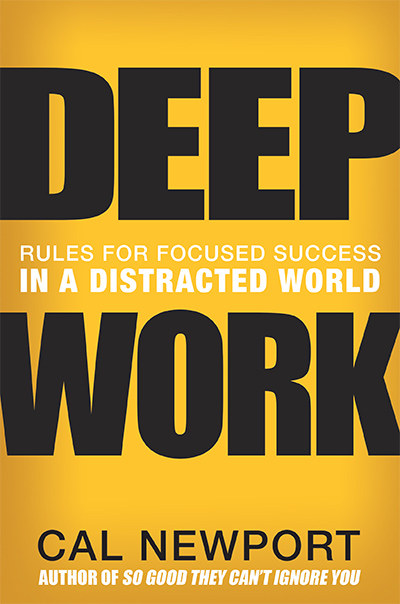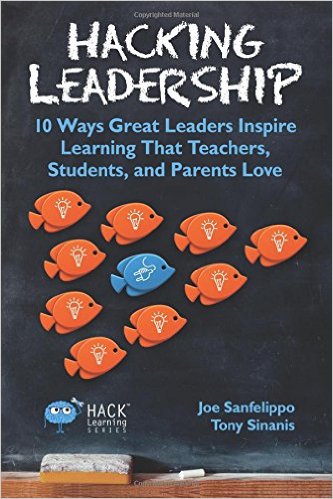“books are the calmest and most constant friends; they are the most accessible and wise counselors, and the most patient teachers.” charles william eliot
My goal with the must-read list is to select a collection of books to read this coming year that provide thoughtful and unique perspectives on education and learning. this is the fourth annual publication to present seven books that cross disciplines: it includes books on business, science and technology, and digital culture. my goal is to try to gain perspective on the direction education might take in an effort to anticipate what we can do to remain relevant, current, and effective.
You are reading: Best education books 2017
1. Social Networking for Scholars, by Mark Carrigan I first learned about this book when I read an interview with author Carrigan published in Inside Higher Ed. Since interest in the title and topic was so high when sharing an overview on social media and because of its practical nature, I placed it at number one on my must-read list. the book seems instructive, a true guide as the title suggests. there are nine chapters in all; chapter two is available for preview here.
2. Learning Environment Modeling: Redefining Learning Environment Design
“Learning Environment Models are blueprints used for communicating the design of learning environments.” http://cece.uco.edu/lem/
See Also: Best Homeschooling Books for Parents – Fearless Homeschool
I look forward to this book: it describes a design approach to creating learning experiences. the method is described as “a visual and collaborative [design] process to design the spaces and places where people learn”. The LEM Concept is founded by a group of educators from Central Oklahoma University who started the non-profit Institute for Learning Environment Design. the book is engaging and engaging. makes effective use of white space and includes several diagrams illustrating key concepts. It is for sale through the Institute for the Design of Learning Environments website.
3. weapons of math destruction, by cathy o’neil we’ve read a lot about the potential of “big data” in recent years, which is essentially data manipulated by algorithms to convert that generated by the participation of individuals on digital platforms (for example, lms platforms). educause recently featured a paper on the potential and pitfalls of big data in education, how algorithms can be used to predict student performance, dropout, and even patterns in course consumption. student activity produces a lot of data, however, is it used responsibly and accurately? After listening to an interview with the author on NPR where O’Neil alludes to algorithms and public education, Weapons of Mathematical Destruction seems like a worthy and necessary read. despite the author’s somewhat gloomy outlook on the potential of algorithms, the book makes the list.

interesting. perhaps the book contains insights that educators and students can apply to improve learning and development in our increasingly cluttered learning environments. The book has received solid reviews from The Economist, The Wall Street Journal, and The Guardian.
5. moocs and open education around the world, edited by curtis bonk, mimi lee, thomas reeves & Thomas Reynolds A must-read list on education would not be complete without a title dealing with MOOCs. i chose this book for two key reasons, one is the publisher, routledge – i have not been disappointed in the quality of his books, and second, because of the main editor, curtis bonk, an e-learning scholar and author i have followed for several years. years due to his innovative (early) thinking on open and distance education. The book presents insights and learnings related to delivering moocs and other forms of offerings in regions and nations around the world.
See Also: Addictive Audiobooks for Teens – Imagination Soup

Aimed at K-12 leaders, this is the fifth installment in a book on practical applications for educational leadership written by two school administrators. I included it here for its content: it seems relevant to today’s learning challenges and focuses on people, not technology. what confirmed the book as a must read is chapter 8, the theme is empowering teachers to direct their own learning. the book also gets solid reviews…”this book is not only easy to read but also very practical for school leadership. suggestions are based largely on today’s schools and the community we serve. one of the best leadership books available with excellent information from cover to cover.” melissa boyle, amazon, verified purchase
7. the third wave: a business vision of the future, by steve case i like to read books by big picture thinkers that give a glimpse of what the future might hold. In previous lists, I have selected books that focus on higher education, last year’s list included the end of college. Wave 3 has a broader scope, however, I chose it based on a talk I heard author Steve Case give a few years ago. I was impressed by his vision of education and technology. Although the description of the book suggests that it is aimed at entrepreneurs, it is applicable to leaders of any type of institution, including education, given its emphasis on relationships (not just technology) with stakeholders in the digital age.
“The case explains the ways in which tech startups (a growing number of which, he argues, will not be based in Silicon Valley) will have to rethink their relationships with customers, competitors and governments; and offers advice on how entrepreneurs can make winning business decisions and strategies, and how all of us can make sense of this changing digital age.” (about, thethirdwavebook.com)
closing I look forward to another year of good company with some great books. Thank you for reading the online learning ideas, which motivate me to continue writing and sharing.
See Also: 10 Worthwhile Books Written by Self-Made Billionaires
